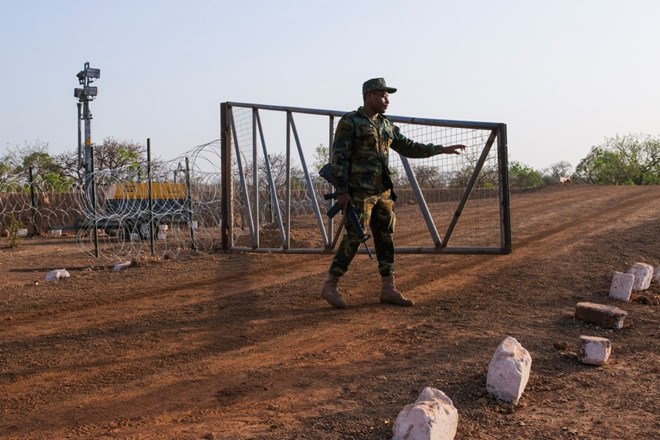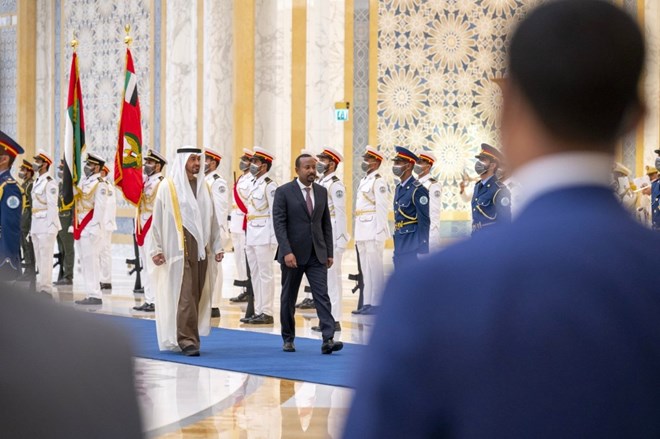
Tuesday October 1, 2024

Mogadishu (HOL) — Geopolitical shifts are reshaping Sub-Saharan Africa's arms trade, as traditional suppliers like Russia lose ground to rising competitors such as China and Turkey. A new series of reports by the Italian Institute for International Political Studies (ISPI), titled "Importing (In)security: The Evolving Arms Trade in Sub-Saharan Africa," highlights the changing landscape of the arms market in the region, with China emerging as a dominant supplier.
Sub-Saharan African nations are increasingly turning to China for military hardware, with Beijing surpassing Moscow as the region's leading arms supplier. The report shows Ethiopia exemplifies this realignment, relying heavily on Chinese and Turkish arms supplies. Between 2019 and 2023, China accounted for 41% of Ethiopia's major arms imports, while Russia, once the dominant player, supplied 46%. Türkiye also made its mark, contributing 6.4% of the country's military hardware during the same period.
China's influence is growing across the region. Data from the Stockholm International Peace Research Institute (SIPRI) shows that China's share of arms exports to Sub-Saharan Africa rose to 19%, overtaking Russia's 17%. This shift reflects broader global trends, with Russia's arms exports dropping 53%, mainly due to the ongoing war in Ukraine, which has strained its military resources and damaged its reputation.
Countries that once heavily relied on Russian arms are now exploring alternatives due to supply chain disruptions and concerns over reliability. Despite these setbacks, Russia maintains significant military cooperation agreements with several African nations. During the July 2023 Russia-Africa Summit in St. Petersburg, President Vladimir Putin announced that Russia had 40 active military-technical agreements with African countries. These agreements encompass training, military hardware transfers, and counterterrorism support.
"Competitive pricing and extensive financing options have enabled China to eclipse Russia's traditionally dominant role," the report notes. Countries like Nigeria, Angola, and Ethiopia are among the top importers of Chinese arms. Nigeria received 44% of its major arms imports from China between 2019 and 2023, enhancing its capabilities to combat insurgent groups like Boko Haram.
Angola, once Russia's largest arms client in Sub-Saharan Africa, is also pivoting away from Moscow. In a December 2022 interview, Angolan President João Lourenço remarked, "Our military is reliant on outdated Soviet-era technology. We invite international partners to participate in modernizing our military equipment." Angola has since turned to other partners like China and France for its military needs.
Meanwhile, the United Arab Emirates (UAE) is emerging as a significant player in the arms trade. The UAE has ramped up its arms transfers and security cooperation with countries like Sudan, Somalia, Ethiopia, Chad, Mali, and Mozambique. These efforts include supplying armoured vehicles and providing military training, marking a new chapter in the region's complex security dynamics.

The influx of new arms suppliers is altering the security landscape in Sub-Saharan Africa. While diversification offers countries more options, it also brings challenges in monitoring and regulating arms flows, potentially exacerbating conflicts. "There is a need for greater transparency and adherence to international arms control agreements to prevent further destabilization," the report warns.
The report also highlights the increasing use of improvised explosive devices (IEDs) by non-state actors, particularly in West Africa. Over 6,600 casualties were reported between 2013 and 2022 due to IED-related incidents in countries like Burkina Faso, Mali, and Nigeria. Non-state armed groups are exploiting unregulated markets for explosive components, with materials often diverted from legal markets into illicit use.
"Non-state armed groups are exploiting unregulated markets for explosive components," the report notes. "This underscores the need for robust control measures to prevent the diversion of legal materials to illicit use."
China's growing presence is not limited to arms sales. Beijing is investing heavily in military training and cooperation initiatives across Africa. During the September 2024 Forum on China-Africa Cooperation Summit, China pledged $50 billion in financial support over the next three years, with $140 million dedicated to security cooperation.
"China views the education and training of foreign military personnel as an opportunity to promote its governance model and build closer ties," the report explains. This includes the establishment of military training centers and the deployment of Chinese private security companies. Beijing's comprehensive strategy is designed to bolster its influence across the continent while positioning itself as a key security partner.
